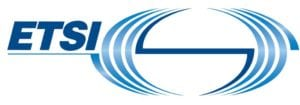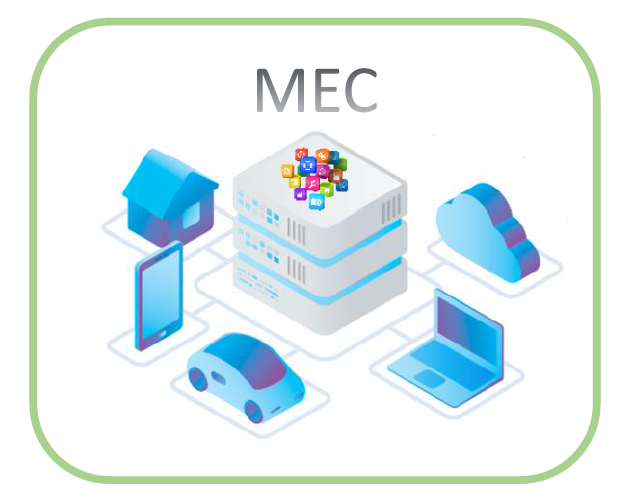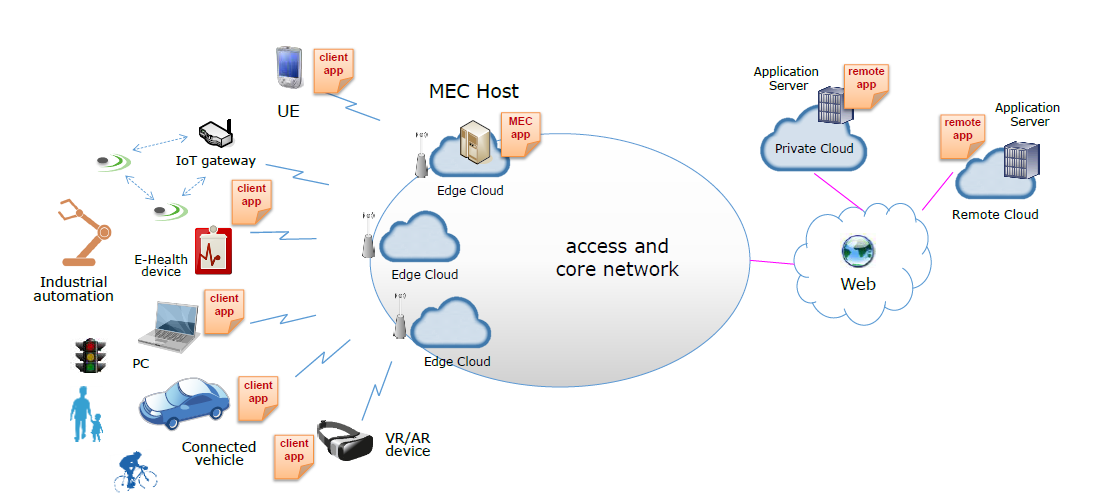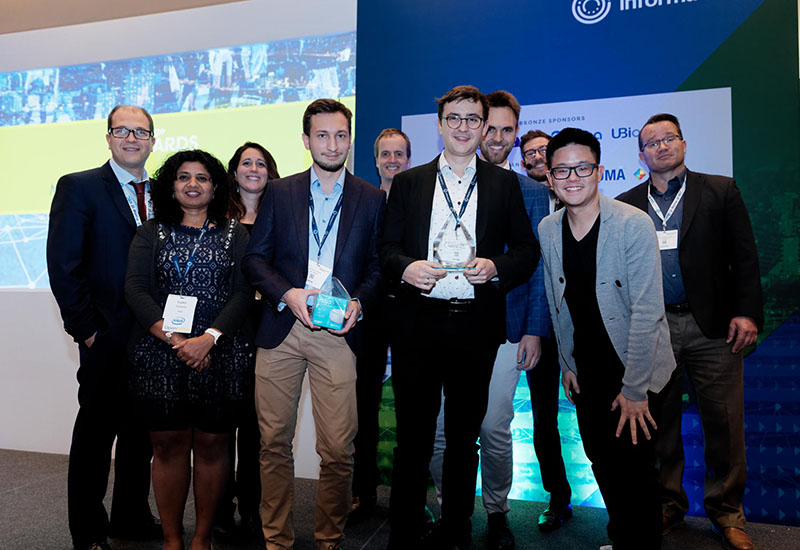MEC Hackathon 2019 London: Difference between revisions
From MECwiki
No edit summary |
No edit summary |
||
| (3 intermediate revisions by the same user not shown) | |||
| Line 1: | Line 1: | ||
__NOTOC__ | __NOTOC__ | ||
<br> | |||
<p class="left" style="font-size:26px;"> ←''[[Past_events|Past Hackathons]]''<p> | |||
<br> | |||
[[File:London.jpg|500px|center|top|class=img-responsive]] | [[File:London.jpg|500px|center|top|class=img-responsive]] | ||
| Line 10: | Line 12: | ||
The London MEC Hackathon was hosted at the Edge Computing Congress 2019 on 17-18 September 2019. | The London MEC Hackathon was hosted at the Edge Computing Congress 2019 on 17-18 September 2019. | ||
The event was organized by Intel, VIAVI, Telefonica, Huawei, Saguna, Informa Tech and MobiledgeX, and endorsed by ETSI. | The event was organized by Intel, VIAVI, Telefonica, Huawei, Saguna, Informa Tech and MobiledgeX, | ||
[[File:2019-hack-london-supporters.png|800px |center|class=img-responsive]] | |||
<br> | |||
<p class="center"> and endorsed by [[File:ETSI-logo.png|200px |class=img-responsive|link=https://www.etsi.org]] </p> | |||
* See [//mecwiki.etsi.org/images/2019_mec-hackathon-london-2019-call-for-developers.pdf Call-For-Developers] | * See [//mecwiki.etsi.org/images/2019_mec-hackathon-london-2019-call-for-developers.pdf Call-For-Developers] | ||
* Press Release of the event: [ | * Press Release of the event: [//www.etsi.org/committee?id=1648 here] | ||
__TOC__ | __TOC__ | ||
| Line 21: | Line 26: | ||
== Technical challenge == | == Technical challenge == | ||
* MEC (Multi-access Edge Computing) can serve many key 5G use cases. Most of them are related to application scenarios specifically targeted to vertical markets of the 5G era. | |||
* The purpose of this Hackathon is to demonstrate the usage of MEC system as an enabler for different use cases and business objectives, helping all stakeholders to develop a diverse, open MEC ecosystem. | |||
[[File:2019-hack-london-logo.png|400px|center|top|class=img-responsive]] | |||
* The competition was open to developers to test their applications with ETSI MEC APIs (Application Programming Interfaces) in a variety of use cases. | * The competition was open to developers to test their applications with ETSI MEC APIs (Application Programming Interfaces) in a variety of use cases. | ||
* Examples of MEC-enabled vertical segments applications include (but are not limited to): | |||
** automotive and cooperative vehicles | |||
** virtual reality / augmented reality | |||
** IoT scenarios (with sensors, fog nodes, …) | |||
** robotics and factories of the future | |||
** eHealth and mHealth | |||
** media and entertainment | |||
** applications for the energy industry | |||
** etc … | |||
[[File:2019-hack-london-network.png|900px|center|top|class=img-responsive]] | |||
<br> | <br> | ||
* Teams developed mobile applications for advanced services in MEC-enabled 5G networks, using ETSI MEC technologies. They were also required to onboard their applications in real-life MEC systems and connect with the MEC APIs to receive simulated in-network data. | * Teams developed mobile applications for advanced services in MEC-enabled 5G networks, using ETSI MEC technologies. They were also required to onboard their applications in real-life MEC systems and connect with the MEC APIs to receive simulated in-network data. | ||
Latest revision as of 17:46, 26 March 2024
Organization
The London MEC Hackathon was hosted at the Edge Computing Congress 2019 on 17-18 September 2019.
The event was organized by Intel, VIAVI, Telefonica, Huawei, Saguna, Informa Tech and MobiledgeX,
- Press Release of the event: here
Technical challenge
- MEC (Multi-access Edge Computing) can serve many key 5G use cases. Most of them are related to application scenarios specifically targeted to vertical markets of the 5G era.
- The purpose of this Hackathon is to demonstrate the usage of MEC system as an enabler for different use cases and business objectives, helping all stakeholders to develop a diverse, open MEC ecosystem.
- The competition was open to developers to test their applications with ETSI MEC APIs (Application Programming Interfaces) in a variety of use cases.
- Examples of MEC-enabled vertical segments applications include (but are not limited to):
- automotive and cooperative vehicles
- virtual reality / augmented reality
- IoT scenarios (with sensors, fog nodes, …)
- robotics and factories of the future
- eHealth and mHealth
- media and entertainment
- applications for the energy industry
- etc …
- Teams developed mobile applications for advanced services in MEC-enabled 5G networks, using ETSI MEC technologies. They were also required to onboard their applications in real-life MEC systems and connect with the MEC APIs to receive simulated in-network data.
Winner team
The MEC Hackathon 2019 winner in London, QC-LABS, showcased the "Rehearsal Room" app, an online space for musicians to help them practice together remotely in real-time with MEC — like a web conferencing tool but optimized for playing instruments.
Rehearsal Room leveraged Multi-access Edge Computing to reduce latency and allow musicians to rehearse without a commute! The QC-LABS team provides services for Internet of Things and Industry 4.0 solutions.





